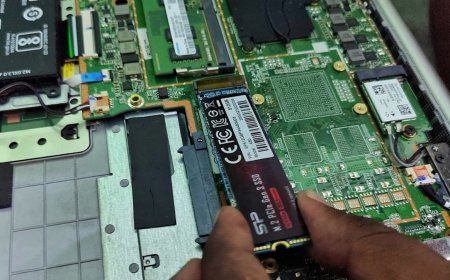How to Find Oakland Trumpet Advanced Band Band Band Band Tonguing Lessons
How to Find Oakland Trumpet Advanced Band Tonguing Lessons Mastering advanced tonguing techniques on the trumpet is a pivotal milestone for any serious musician aiming to perform in elite ensembles, compete at high levels, or pursue professional opportunities in jazz, classical, or contemporary music. In the Oakland, California area — a vibrant cultural hub with a rich tradition in music education
How to Find Oakland Trumpet Advanced Band Tonguing Lessons
Mastering advanced tonguing techniques on the trumpet is a pivotal milestone for any serious musician aiming to perform in elite ensembles, compete at high levels, or pursue professional opportunities in jazz, classical, or contemporary music. In the Oakland, California area — a vibrant cultural hub with a rich tradition in music education — finding high-quality, specialized instruction in advanced trumpet tonguing can be both rewarding and challenging. Many students and parents search for “Oakland trumpet advanced band band band band tonguing lessons,” often repeating the term “band” multiple times due to search engine autocomplete or confusion in phrasing. This guide clarifies the intent behind this search, demystifies the process of locating legitimate, expert-led instruction, and provides a comprehensive roadmap to elevate your tonguing proficiency in Oakland’s dynamic music scene.
Advanced tonguing — the precise, rapid articulation of notes using the tongue to start and separate pitches — is not merely a mechanical skill. It’s a nuanced art that demands coordination between breath support, embouchure control, finger dexterity, and mental focus. Without proper guidance, even highly skilled players can develop inefficient habits that limit speed, clarity, and endurance. This tutorial is designed for intermediate to advanced trumpet players, band directors, and music educators seeking to refine their articulation technique through targeted, localized instruction in the Oakland region.
Step-by-Step Guide
Locating the right advanced trumpet tonguing instruction in Oakland requires a systematic approach. Follow these seven steps to identify, evaluate, and enroll in high-quality lessons tailored to your skill level and musical goals.
Step 1: Clarify Your Search Intent
The repeated phrase “band band band band” in search queries like “Oakland trumpet advanced band band band band tonguing lessons” typically reflects a user’s uncertainty in phrasing or an attempt to trigger search engine results by increasing keyword density. In reality, you’re seeking advanced trumpet instruction focused specifically on tonguing techniques within the context of school or community band settings — not literal “band band” lessons.
Refine your search terms to: “advanced trumpet tonguing lessons Oakland,” “professional trumpet articulation coaching near me,” or “Oakland jazz trumpet articulation instructor.” These phrases align with how qualified instructors and music schools label their services. Avoid keyword stuffing; search engines now prioritize semantic relevance over repetition.
Step 2: Identify Reputable Music Institutions in Oakland
Oakland is home to several institutions with strong music programs that either offer private instruction or can refer you to certified trumpet pedagogues. Start by researching:
- Oakland School for the Arts (OSA) — Offers advanced instrumental programs and often has alumni or faculty who provide private lessons.
- California Jazz Conservatory (CJC) — Located in nearby Berkeley, CJC instructors frequently teach in Oakland and specialize in jazz articulation techniques.
- Oakland Youth Orchestra — Connects students with experienced ensemble directors who may offer private coaching.
- University of California, Berkeley — Music Department — Graduate students and faculty often offer private lessons at reasonable rates.
Visit their websites, check faculty bios, and look for keywords like “trumpet pedagogy,” “articulation,” “high register technique,” or “advanced embouchure.” These are indicators of instructors who specialize in advanced tonguing.
Step 3: Leverage Local Music Communities
Oakland’s music scene thrives on community networks. Engage with local groups to uncover hidden gems:
- Join the Oakland Music Scene Facebook Group and post a specific request: “Seeking advanced trumpet tonguing coach for jazz/classical repertoire — experienced with high-speed double and triple tonguing.”
- Attend live performances at The New Parish, The Fox Theater, or Lincoln Theater. After shows, speak with trumpet players — many are educators.
- Visit Oakland Public Library’s Music Room — They host monthly music workshops and maintain lists of local instructors.
- Connect with members of the East Bay Music Teachers Association — they maintain a directory of certified instructors with specialties.
Word-of-mouth referrals from active performers are often more reliable than online directories. A player who performs regularly in a professional brass quintet or pit orchestra is likely to have refined tonguing techniques and the ability to teach them effectively.
Step 4: Evaluate Instructor Credentials
Not all trumpet teachers are equal. When evaluating potential instructors, look for:
- Performance background — Have they performed in professional bands, orchestras, or jazz ensembles? Advanced tonguing is best taught by those who use it daily.
- Teaching philosophy — Do they emphasize biomechanics, breath-tongue coordination, or muscle memory? Avoid instructors who rely solely on “practice more” without technical breakdowns.
- Specialization in articulation — Ask if they use methods like Arban’s Complete Conservatory Method, Herbert L. Clarke’s Technical Studies, or Charles Colin’s Lip Flexibilities to develop tonguing.
- Student outcomes — Do their students win regional auditions, join honor bands, or receive scholarships? Request testimonials or video demonstrations of student progress.
Ask potential instructors: “Can you demonstrate a triple-tongued passage at 120 BPM with clean articulation and no air noise?” A skilled teacher should be able to do this effortlessly and explain the tongue placement (e.g., “tu-ku-tu” vs. “tu-ru-tu”) and breath support required.
Step 5: Schedule Trial Lessons
Before committing to a long-term schedule, book one or two trial lessons. Use this time to assess:
- How clearly the instructor diagnoses your current tonguing issues (e.g., inconsistent air stream, tongue hitting the teeth too hard, delayed release).
- Whether they provide personalized exercises — not just generic etudes.
- If they use video analysis or metronome apps to track progress.
- How they adjust technique for different musical styles (jazz swing vs. classical staccato).
During the lesson, record yourself playing a passage you struggle with — say, the opening of Haydn’s Trumpet Concerto or a fast jazz line from “A Night in Tunisia.” Ask the instructor to break down your articulation point-by-point. A true expert will identify subtle flaws: tongue retraction timing, vowel shaping, or insufficient diaphragm engagement.
Step 6: Assess Location and Logistics
While talent matters most, consistency depends on convenience. Consider:
- Proximity — Are lessons offered in Oakland neighborhoods like Temescal, Rockridge, or Downtown? Avoid commutes longer than 30 minutes unless the instructor is exceptional.
- Flexible scheduling — Do they offer evening or weekend slots? Advanced players often balance school, work, or ensemble rehearsals.
- Online options — Many top instructors now offer Zoom lessons with high-definition audio and slow-motion video playback. This can be ideal for analyzing tonguing mechanics.
- Group vs. private — While private lessons are ideal for advanced work, some instructors offer small group sessions (2–3 students) focused on ensemble tonguing synchronization — useful for band members.
Be wary of instructors who only teach in large group settings without individual feedback — advanced tonguing requires personalized correction.
Step 7: Commit and Track Progress
Once you’ve selected an instructor, establish a clear learning plan:
- Set measurable goals: “Achieve clean triple tonguing at 112 BPM on Arban’s Study
23 within 8 weeks.”
- Track weekly progress with a practice journal — note which exercises improved, which still feel stiff, and what adjustments were made.
- Request recordings of your playing every 2–3 weeks to compare tonal clarity and articulation consistency.
- Integrate tonguing drills into your daily routine — even 10 minutes of focused articulation work yields faster results than 30 minutes of unfocused playing.
Advanced tonguing is not about speed alone — it’s about precision, endurance, and musical expression. A great instructor will help you develop tonguing that serves the music, not just the metronome.
Best Practices
To maximize your progress in advanced trumpet tonguing, adopt these evidence-based best practices developed by leading pedagogues and performance scientists.
Practice with Purpose, Not Repetition
Simply playing scales faster will not improve tonguing. Instead, use the “Slow to Fast” method:
- Begin at 60 BPM with a metronome, articulating each note with perfect clarity.
- Focus on tongue placement: the tip should lightly touch just behind the upper front teeth, not the gums or roof of the mouth.
- Once clean at 60 BPM, increase by 4 BPM weekly.
- Never exceed a tempo where articulation becomes sloppy — this ingrains bad habits.
Separate Tongue and Air
Many players confuse tonguing with breath pressure. The tongue initiates the note; the air sustains it. Practice “air-only” attacks: blow air through the mouthpiece without tonguing, then add the tongue as a gentle “stop and release.” This trains your brain to decouple air support from articulation.
Use Syllables Strategically
Double tonguing: “tu-ku” or “du-gu” — experiment to find which feels most natural. Triple tonguing: “tu-ku-tu” is standard, but “tu-tu-ku” may suit faster passages. Avoid “t-t-k” — it creates a harsh, uneven attack.
Record yourself using each syllable pattern. Listen for consistency in volume and tone. The goal is seamless transitions between syllables — no audible gap or volume drop.
Strengthen Tongue Muscles with Isolation Drills
Perform daily tongue exercises outside of playing:
- Tap the tip of your tongue rapidly against the roof of your mouth (10 seconds on, 10 seconds off — repeat 5x).
- Say “la-la-la” rapidly without voice — this mimics the motion of “tu-tu-tu.”
- Use a tongue depressor to gently press the tongue against the lower teeth while blowing air — builds control.
These exercises improve neuromuscular coordination without fatiguing the embouchure.
Integrate Tonguing into Repertoire Early
Don’t wait until you’ve “mastered” tonguing before applying it to music. Start applying advanced articulation to simple melodies:
- Play “Hot Cross Buns” using only triple tonguing.
- Perform a slow jazz ballad with staccato articulation on every note.
- Transcribe and articulate a Charlie Parker line note-for-note — focus on the “feel” of the articulation, not just the notes.
This trains your brain to associate tonguing with musical intent, not mechanical repetition.
Monitor Physical Health
Advanced tonguing can lead to tension if not managed properly:
- Stretch your jaw, neck, and shoulders before practice.
- Stay hydrated — dry tongue = sticky articulation.
- If you experience jaw fatigue or lip numbness, stop and reassess your technique — you may be pressing too hard.
- Consider consulting a physical therapist specializing in musicians’ injuries if discomfort persists.
Use Technology to Enhance Feedback
Modern tools can accelerate progress:
- Metronome apps (e.g., Pro Metronome, Soundbrenner) — set subdivisions to isolate tonguing rhythms.
- Slow-down software (e.g., Transcribe!, Amazing Slow Downer) — analyze recordings of professional trumpet players like Maynard Ferguson or Wynton Marsalis.
- Video analysis — Record yourself from the side to observe tongue movement. Compare to videos of expert players.
- Audio spectrograms (e.g., Audacity) — visualize the attack transient of each note. Clean tonguing produces sharp, consistent peaks.
Tools and Resources
Below is a curated list of essential tools and resources to support your journey in mastering advanced trumpet tonguing in Oakland and beyond.
Books
- Arban’s Complete Conservatory Method for Trumpet — The foundational text for articulation. Focus on Studies
12, #15, #23, and #30.
- Herbert L. Clarke’s Technical Studies — Essential for developing speed and endurance. Study
1 and #3 are particularly valuable for tonguing.
- Charles Colin’s Lip Flexibilities — Builds control and coordination between tongue and breath.
- The Art of Trumpet Playing by James Thompson — Offers deep insights into biomechanics of articulation.
- Trumpet Technique by James Stamp — Focuses on minimal motion and efficiency — critical for advanced players.
Online Platforms
- YouTube Channels: “The Trumpet Channel,” “TromboneTalk” (has excellent trumpet content), “Chris Gekker Trumpet” — search for “triple tonguing tutorial” or “articulation drills.”
- MasterClass — Wynton Marsalis: Jazz Trumpet — Though not a tonguing-specific course, his articulation phrasing is masterful.
- TrueFire — Jazz Trumpet Articulation Course — Structured lessons on swing articulation, ghost notes, and syncopated tonguing.
- SoundCloud and Bandcamp — Search “Oakland trumpet” or “Bay Area jazz trumpet” to find local artists. Analyze their articulation in live recordings.
Local Oakland Resources
- Oakland Music Exchange — A local music shop that hosts free masterclasses and has bulletin boards with instructor flyers.
- California Jazz Conservatory Outreach Program — Offers discounted lessons to students in the East Bay.
- Alameda County Office of Education — Arts Education Network — Connects students with certified private instructors.
- Oakland Public Library — Music Collection — Free access to sheet music, method books, and streaming audio of orchestral and jazz trumpet repertoire.
Practice Aids
- Metronome with subdivisions — Essential for rhythmic precision.
- Resonance tube or mouthpiece-only practice — Isolates tongue and air without the full instrument’s resistance.
- Practice mute — Allows for quiet, focused articulation work without disturbing others.
- Smartphone voice recorder — Record daily to track improvement.
- Whiteboard or practice journal — Log daily goals, challenges, and breakthroughs.
Apps for Advanced Practice
- Metronome Beats — Customizable subdivisions and visual cues.
- Anytune — Slow down recordings without pitch shift — perfect for transcribing jazz solos.
- Notion — Create custom tonguing exercises and sync with playback.
- GarageBand — Record yourself and layer tracks to compare articulation clarity over time.
Real Examples
Here are three real-life examples of students from the Oakland area who successfully improved their advanced tonguing with targeted instruction.
Example 1: Marcus R., 17 — Oakland School for the Arts
Marcus struggled with triple tonguing in fast jazz charts. He could play single and double tonguing cleanly but would collapse on triple tonguing above 100 BPM. After two months of private lessons with a former member of the Oakland Symphony, Marcus learned to use “tu-ku-tu” with a relaxed jaw and forward tongue position. His instructor used video analysis to show Marcus that his tongue was retracting too far, causing air leakage. By focusing on tongue tip contact and diaphragm support, Marcus improved his triple tonguing to 132 BPM with zero tone loss. He was selected for the All-State Jazz Ensemble.
Example 2: Elena T., 22 — UC Berkeley Music Major
Elena, a classical trumpet major, needed to master the rapid articulation in Haydn’s Trumpet Concerto. She worked with a private instructor who used Arban’s method and incorporated daily “tongue slurs” — alternating between tongued and slurred notes to build coordination. She practiced 15 minutes daily with a metronome and recorded herself weekly. Within 10 weeks, her articulation became indistinguishable from professional recordings. She received a full scholarship to a graduate program in orchestral performance.
Example 3: Jamal K., 15 — East Bay Youth Orchestra
Jamal, a self-taught player, relied on YouTube tutorials but lacked feedback. He joined a small group class offered through the Oakland Public Library’s music outreach program. The instructor used a “tongue echo” drill: play a phrase, then echo it with the tongue only — no air. This helped Jamal isolate articulation timing. He also used the Anytune app to slow down recordings of Louis Armstrong. Within six months, his articulation improved dramatically. He now leads the youth orchestra’s trumpet section and mentors younger players.
These examples demonstrate that success in advanced tonguing is not about innate talent — it’s about consistent, informed practice guided by expert feedback.
FAQs
What is the difference between single, double, and triple tonguing?
Single tonguing uses “tu” or “du” for each note. Double tonguing alternates “tu-ku” to enable faster passages. Triple tonguing uses “tu-ku-tu” or “tu-tu-ku” for uneven rhythmic groupings like triplets. Each requires different tongue coordination and breath control.
Can I learn advanced tonguing without a teacher?
While some progress is possible with self-study, advanced tonguing is highly technical and prone to subtle errors that are nearly impossible to self-diagnose. A skilled instructor provides real-time feedback on tongue placement, breath support, and muscle tension — elements critical to avoiding injury and maximizing efficiency.
How long does it take to master advanced tonguing?
With consistent daily practice (15–30 minutes), most students see noticeable improvement in 4–8 weeks. Mastery — clean, musical articulation at tempos above 120 BPM — typically takes 6–12 months, depending on prior experience and practice quality.
Is triple tonguing necessary for band players?
Yes — especially in advanced high school, college, and community bands. Many modern band arrangements, jazz charts, and orchestral excerpts require triple tonguing for rhythmic accuracy and stylistic authenticity. Even if not required now, it’s a vital skill for future opportunities.
What if I can’t afford private lessons?
Oakland offers several affordable options: the Oakland Public Library’s music workshops, community college extension classes, and volunteer teaching programs through the East Bay Music Teachers Association. Many graduate students from UC Berkeley also offer low-cost lessons.
How do I know if my tonguing is too tense?
If your jaw aches, lips swell, or you feel fatigued after 10 minutes of practice, your technique is likely too tense. Clean articulation should feel effortless. Focus on light tongue contact and steady air — not force.
Can adults learn advanced tonguing?
Absolutely. Many adult learners achieve exceptional results because they bring discipline and focused intent. Age does not limit neuromuscular adaptability — consistent, mindful practice does.
What’s the most common mistake in advanced tonguing?
Using the throat instead of the tongue. Many players push air from the throat to “force” fast notes, which creates a harsh, airy sound. True tonguing comes from the tongue’s tip — the air stream must remain steady and supported by the diaphragm.
Conclusion
Finding high-quality advanced trumpet tonguing instruction in Oakland is not a matter of luck — it’s a process of intention, research, and engagement with the local music community. The repeated search term “Oakland trumpet advanced band band band band tonguing lessons” may reflect confusion, but your goal is clear: to develop the articulation skills that set elite performers apart.
By following this guide — refining your search, identifying qualified instructors, practicing with precision, and leveraging the right tools — you will not only master advanced tonguing but also deepen your musical expression and confidence. Whether you’re preparing for an audition, aiming for a scholarship, or simply seeking to play with greater clarity and power, the path is within reach.
Oakland’s rich musical heritage — from the legacy of jazz legends to today’s vibrant youth ensembles — offers more than just a location. It offers a community of mentors, performers, and learners who can help you ascend to the next level. Don’t wait for the perfect teacher to appear. Take the first step today: visit a local library, attend a concert, send a message to a music teacher, and begin your journey with purpose.
Advanced tonguing is not a destination — it’s a discipline. And with the right guidance, you will master it.





























